- Home
- Elizabeth Gaskell
The life of Charlotte Brontë Page 25
The life of Charlotte Brontë Read online
Page 25
“Believe me, though I was born in April, the month of cloud and sunshine, I am not changeful. My spirits are unequal, and sometimes I speak vehemently, and sometimes I say nothing at all; but I have a steady regard for you, and if you will let the cloud and shower pass by, be sure the sun is always behind, obscured, but still existing.”
At Christmas she left her situation, after a parting with her employers, which seems to have affected and touched her greatly. “They only made too much of me,” was her remark, after leaving this family; “I did not deserve it.”
All four children hoped to meet together at their father’s house this December. Branwell expected to have a short leave of absence from his employment as a clerk on the Leeds and Manchester Railway, in which he had been engaged for five months. Anne arrived before Christmas-day. She had rendered herself so valuable in her difficult situation, that her employers vehemently urged her return, although she had announced her resolution to leave them; partly on account of the harsh treatment she had received, and partly because her stay at home, during her sisters’ absence in Belgium, seemed desirable, when the age of the three remaining inhabitants of the parsonage was taken into consideration.
After some correspondence and much talking over plans at home, it seemed better, in consequence of letters which they received from Brussels giving a discouraging account of the schools there, that Charlotte and Emily should go to an institution at Lille, in the north of France, which was highly recommended by Baptist Noel, and other clergymen. Indeed, at the end of January, it was arranged that they were to set off for this place in three weeks, under the escort of a French lady, then visiting in London. The terms were £50 each pupil, for board and French alone, but a separate room was to be allowed for this sum; without this indulgence, it was lower. Charlotte writes:—
“January 20th, 1842.
“I considered it kind in aunt to consent to an extra sum for a separate room. We shall find it a great privilege in many ways. I regret the change from Brussels to Lille on many accounts, chiefly that I shall not see Martha. Mary has been indefatigably kind in providing me with information. She has grudged no labour, and scarcely any expense to that end. Mary’s price is above rubies. I have, in fact, two friends—you and her—staunch and true, in whose faith and sincerity I have as strong a belief as I have in the Bible. I have bothered you both—you especially; but you always get the tongs and heap coals of fire upon my head. I have had letters to write lately to Brussels, to Lille, and to London. I have lots of chemises, night-gowns, pocket-handkerchiefs, and pockets to make; besides clothes to repair. I have been, every week since I came home, expecting to see Branwell, and he has never been able to get over yet. We fully expect him, however, next Saturday. Under these circumstances how can I go visiting? You tantalize me to death with talking of conversations by the fireside. Depend upon it, we are not to have any such for many a long month to come. I get an interesting impression of old age upon my face; and when you see me next I shall certainly wear caps and spectacles.”
CHAPTER XI.
I am not aware of all the circumstances which led to the relinquishment of the Lille plan. Brussels had had from the first a strong attraction for Charlotte; and the idea of going there, in preference to any other place, had only been given up in consequence of the information received of the second-rate character of its schools. Reference has been made in her letters to Mrs. Jenkins, the wife of the chaplain of the British Embassy. At the request of his brother—a clergyman, living not many miles from Haworth, and an acquaintance of Mr. Brontë’s—she made much inquiry, and at length, after some discouragement in her search, heard of a school which seemed in every respect desirable. There was an English lady, who had long lived in the Orleans family, amidst the various fluctuations of their fortunes, and who, when the Princess Louise was married to King Leopold, accompanied her to Brussels, in the capacity of reader. This lady’s grand-daughter was receiving her education at the pensionnat of Madame Héger;1 and so satisfied was the grandmother with the kind of instruction given, that she named the establishment, with high encomiums, to Mrs. Jenkins; and, in consequence, it was decided that, if the terms suited, Miss Brontë and Emily should proceed thither. M. Héger informs me that, on receipt of a letter from Charlotte, making very particular inquiries as to the possible amount of what are usually termed “extras,” he and his wife were so much struck by the simple earnest tone of the letter, that they said to each other:—“These are the daughters of an English pastor, of moderate means, anxious to learn with an ulterior view of instructing others, and to whom the risk of additional expense is of great consequence. Let us name a specific sum, within which all expenses shall be included.”
This was accordingly done; the agreement was concluded, and the Brontës prepared to leave their native country for the first time, if we except the melancholy and memorable residence at Cowan’s Bridge. Mr. Brontë determined to accompany his daughters. Mary and her brother, who were experienced in foreign travelling, were also of the party. Charlotte first saw London in the day or two they now stopped there; and, from an expression in one of her subsequent letters, they all, I believe, stayed at the Chapter Coffee House, Paternoster Row—a strange, old-fashioned tavern, of which I shall have more to say hereafter.
Mr. Brontë took his daughters to the Rue d‘Isabelle, Brussels; remained one night at Mr. Jenkins’; and straight returned to his wild Yorkshire village.2
What a contrast to that must the Belgian capital have presented to those two young women thus left behind! Suffering acutely from every strange and unaccustomed contact—far away from their beloved home, and the dear moors beyond—their indomitable will was their great support. Charlotte’s own words, with regard to Emily, are:—
“After the age of twenty, having meantime studied alone with diligence and perseverance, she went with me to an establishment on the continent. The same suffering and conflict ensued, heightened by the strong recoil of her upright heretic and English spirit from the gentle Jesuitry of the foreign and Romish system. Once more she seemed sinking, but this time she rallied through the mere force of resolution: with inward remorse and shame she looked back on her former failure, and resolved to conquer, but the victory cost her dear. She was never happy till she carried her hard-won knowledge back to the remote English village, the old parsonage-house, and desolate Yorkshire hills.”
They wanted learning. They came for learning. They would learn. Where they had a distinct purpose to be achieved in intercourse with their fellows, they forgot themselves; at all other times they were miserably shy. Mrs. Jenkins told me that she used to ask them to spend Sundays and holidays with her, until she found that they felt more pain than pleasure from such visits. Emily hardly ever uttered more than a monosyllable. Charlotte was sometimes excited sufficiently to speak eloquently and well—on certain subjects; but before her tongue was thus loosened, she had a habit of gradually wheeling round on her chair, so as almost to conceal her face from the person to whom she was speaking.
And yet there was much in Brussels to strike a responsive chord in her powerful imagination. At length she was seeing somewhat of that grand old world of which she had dreamed. As the gay crowds passed by her, so had gay crowds paced those streets for centuries, in all their varying costumes. Every spot told an historic tale, extending back into the fabulous ages when San and Jannika, the aboriginal giant and giantess, looked over the wall, forty feet high, of what is now the Rue Villa Hermosa, and peered down upon the new settlers who were to turn them out of the country in which they had lived since the deluge. The great solemn Cathedral of St. Gudule, the religious paintings, the striking forms and ceremonies of the Romish Church—all made a deep impression on the girls, fresh from the bare walls and simple worship of Haworth Church. And then they were indignant with themselves for having been susceptible of this impression, and their stout Protestant hearts arrayed themselves against the false Duessa that had thus imposed upon them.
The ver
y building they occupied as pupils, in Madame Heger’s pensionnat, had its own ghostly train of splendid associations, marching for ever, in shadowy procession, through and through the ancient rooms, and shaded alleys of the gardens. From the splendour of today in the Rue Royale, if you turn aside, near the statue of the General Beliard, you look down four flights of broad stone steps upon the Rue d‘Isabelle. The chimneys of the houses in it are below your feet. Opposite to the lowest flight of steps, there is a large old mansion facing you, with a spacious walled garden behind—and to the right of it. In front of this garden, on the same side as the mansion, and with great boughs of trees sweeping over their lowly roofs, is a row of small, picturesque, old-fashioned cottages, not unlike, in degree and uniformity, to the almshouses so often seen in an English country town. The Rue d’Isabelle looks as though it had been untouched by the innovations of the builder for the last three centuries; and yet any one might drop a stone into it from the back windows of the grand modern hotels in the Rue Royale, built and furnished in the newest Parisian fashion.
In the thirteenth century, the Rue d’Isabelle was called the Fossé-aux-Chiens; and the kennels for the ducal hounds occupied the place where Madame Héger’s pensionnat now stands. A hospital (in the ancient large meaning of the word) succeeded to the kennel. The houseless and the poor, perhaps the leprous, were received by the brethren of a religious order, in a building on this sheltered site; and what had been a fosse for defence, was filled up with herb-gardens and orchards for upwards of a hundred years. Then came the aristocratic guild of the cross-bow men—that company the members whereof were required to prove their noble descent untainted for so many generations, before they could be admitted into the guild; and, being admitted, were required to swear a solemn oath, that no other pastime or exercise should take up any part of their leisure, the whole of which was to be devoted to the practice of the noble art of shooting with the cross-bow. Once a year a grand match was held, under the patronage of some saint, to whose church-steeple was affixed the bird, or semblance of a bird, to be hit by the victor.o The conqueror in the game was Roi des Arbalétriers for the coming year, and received a jewelled decoration accordingly, which he was entitled to wear for twelve months; after which he restored it to the guild, to be again striven for. The family of him who died during the year that he was king, were bound to present the decoration to the church of the patron saint of the guild, and to furnish a similar prize to be contended for afresh. These noble cross-bow men of the middle ages formed a sort of armed guard to the powers in existence, and almost invariably took the aristocratic, in preference to the democratic side, in the numerous civil dissensions in the Flemish towns. Hence they were protected by the authorities, and easily obtained favorable and sheltered sites for their exercise ground. And thus they came to occupy the old fosse, and took possession of the great orchard of the hospital, lying tranquil and sunny in the hollow below the rampart.
But, in the sixteenth century, it became necessary to construct a street through the exercise-ground of the “Arbalétriers du Grand Serment,” and, after much delay, the company were induced by the beloved Infanta Isabella to give up the requisite plot of ground. In recompense for this, Isabella—who herself was a member of the guild, and had even shot down the bird, and been Queen in 1615—made many presents to the arbalétriers; and, in return, the grateful city, which had long wanted a nearer road to St. Gudule, but been baffled by the noble archers, called the street after her name. She, as a sort of indemnification to the arbalétriers, caused a “great mansion” to be built for their accommodation in the new Rue d’Isabelle. This mansion was placed in front of their exercise-ground, and was of a square shape. On a remote part of the walls, may still be read—
PHILLIPPO IIII. HISPAN. REGE. ISABELLA-CLARA-EUGENIA HISPAN. INFANS. MAGNÆ GULDÆ REGINA GULDÆ FRATRIBUS POSUIT.
In that mansion was held all the splendid feasts of the Grand Serment des Arbalétriers. The master-archer lived there constantly, in order to be ever at hand to render his services to the guild. The great saloon was also used for the court balls and festivals, when the archers were not admitted. The Infanta caused other and smaller houses to be built in her new street, to serve as residences for her “garde noble;” and for her “garde bourgeoise,” a small habitation each, some of which still remain, to remind us of English almshouses. The “great mansion,” with its quadrangular form; the spacious saloon—once used for the arch-ducal balls, where the dark grave Spaniards mixed with the blond nobility of Brabant and Flanders—now a school-room for Belgian girls; the cross-bow men’s archery-ground—all are there—the pensionnat of Madame Héger.
This lady was assisted in the work of instruction by her husband—a kindly, wise, good, and religious man—whose acquaintance I am glad to have made,3 and who has furnished me with some interesting details, from his wife’s recollections and his own, of the two Miss Brontës during their residence in Brussels. He had the better opportunities of watching them, from his giving lessons in the French language and literature in the school. A short extract from a letter, written to me by a French lady resident in Brussels, and well qualified to judge, will help to show the estimation in which he is held.
“Je ne connais pas personellement M. Héger, mais je sais qu‘il est peu de caractères aussi nobles, aussi admirables que le sien. Il est un des membres les plus zélés de cette Société de S. Vincent de Paul dont je t’ai dejà parlé, et ne se contente pas de servir les pauvres et les malades, mais leur consacre encore les soirees. Après des journées absorbées tout entières par les devoirs que sa place lui impose, il réunit les pauvres, les ouvriers, leur donne des cours gratuits, et trouve encore le moyen de les amuser en les instruisant. Ce dévouement te dira assez que M. Héger est profondement et ouvertement religieux. Il a des manières franches et avenantes; il se fait aimer de tous ceux qui l‘approchent, et surtout des enfants. Il a le parole facile, et possède à un haut degré l’ éloquence du bon sens et du cœur. Il n’est point auteur. Homme de zèle et de conscience, il vient de se démettre des fonctions élevées et lucratives qu‘il exercait a l’ Athenée, celles de Préfet des Etudes, parcequ’il ne peut y réaliser le bien qui‘1 avait esperé, introduire l’ enseignement religieux dans le programme des études. J’ai vu une fois Madame Heger, qui a quelque chose de froid et de compassé dans son maintien, et qui prévient peu en sa faveur. Je la crois pourtant aimée et appreciée par ses élèves.”4
There were from eighty to a hundred pupils in the pensionnat, when Charlotte and Emily Brontë entered in February 1842.
M. Héger’s account is that they knew nothing of French. I suspect they knew as much (or as little) for all conversational purposes, as any English girls do, who have never been abroad, and have only learnt the idioms and pronunciation from an Englishwoman. The two sisters clung together, and kept apart from the herd of happy, boisterous, well-befriended Belgian girls, who, in their turn, thought the new English pupils wild and scared-looking, with strange, odd, insular ideas about dress; for Emily had taken a fancy to the fashion, ugly and preposterous even during its reign, of gigot sleeves, and persisted in wearing them long after they were “gone out.” Her petticoats, too, had not a curve or a wave in them, but hung down straight and long, clinging to her lank figure. The sisters spoke to no one but from necessity They were too full of earnest thought, and of the exile’s sick yearning, to be ready for careless conversation, or merry game. M. Héger, who had done little but observe, during the few first weeks of their residence in the Rue d’Isabelle, perceived that with their unusual characters, and extraordinary talents, a different mode must be adopted from that in which he generally taught French to English girls. He seems to have rated Emily’s genius as something even higher than Charlotte’s; and her estimation of their relative powers was the same. Emily had a head for logic, and a capability of argument, unusual in a man, and rare indeed in a woman, according to M. Heger. Impairing the force of this gift, was her stubborn tenacity of will, which ren
dered her obtuse to all reasoning where her own wishes, or her own sense of right, was concerned. “She should have been a man—a great navigator,” said M. Héger in speaking of her. “Her powerful reason would have deduced new spheres of discovery from the knowledge of the old; and her strong, imperious will would never have been daunted by opposition or difficulty; never have given way but with life.” And yet, moreover, her faculty of imagination was such that, if she had written a history, her view of scenes and characters would have been so vivid, and so powerfully expressed, and supported by such a show of argument, that it would have dominated over the reader, whatever might have been his previous opinions, or his cooler perceptions of its truth. But she appeared egotistical and exacting compared to Charlotte, who was always unselfish (this is M. Héger’s testimony); and in the anxiety of the elder to make her younger sister contented, she allowed her to exercise a kind of unconscious tyranny over her.
After consulting with his wife, M. Héger told them that he meant to dispense with the old method of grounding in grammar, vocabulary, &c., and to proceed on a new plan—something similar to what he had occasionally adopted with the elder among his French and Belgian pupils. He proposed to read to them some of the master-pieces of the most celebrated French authors (such as Casimir de la Vigne’s poem on the “Death of Joan of Arc,” parts of Bossuet, the admirable translation of the noble letter of St. Ignatius to the Roman Christians in the “Bibliotheque Choisie des Pères de l’ Eglise, &c.), and after having thus impressed the complete effect of the whole, to analyze the parts with them, pointing out in what such or such an author excelled, and where were the blemishes. He believed that he had to do with pupils capable, from their ready sympathy with the intellectual, the refined, the polished, or the noble, of catching the echo of a style, and so reproducing their own thoughts in a somewhat similar manner.

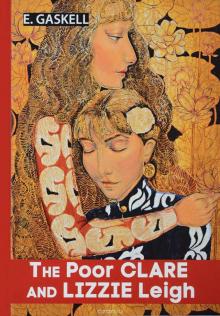 Lizzie Leigh
Lizzie Leigh The Poor Clare
The Poor Clare Lois the Witch
Lois the Witch North and South
North and South Sexton's Hero
Sexton's Hero My Lady Ludlow
My Lady Ludlow Uncle Peter
Uncle Peter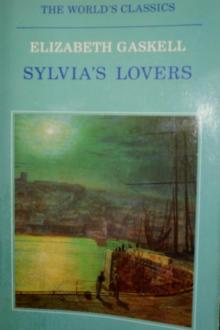 Sylvia's Lovers Elizabeth Cleghorn Gaskell
Sylvia's Lovers Elizabeth Cleghorn Gaskell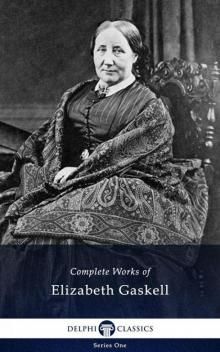 Delphi Complete Works of Elizabeth Gaskell
Delphi Complete Works of Elizabeth Gaskell The Grey Woman
The Grey Woman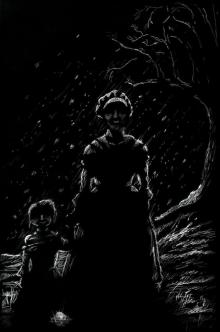 The Old Nurse's Story and Other Tales
The Old Nurse's Story and Other Tales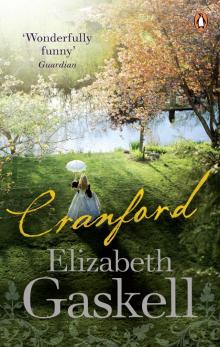 Cranford
Cranford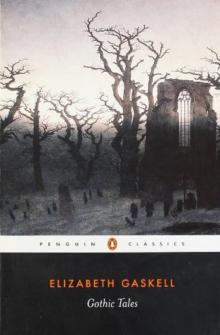 Gothic Tales
Gothic Tales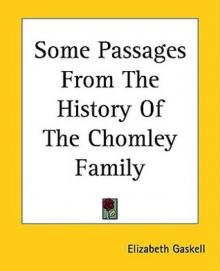 Some Passages From the History of the Chomley Family
Some Passages From the History of the Chomley Family An Accursed Race
An Accursed Race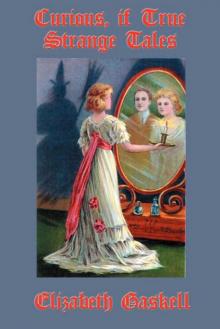 Curious, if True: Strange Tales Elizabeth Cleghorn Gaskell
Curious, if True: Strange Tales Elizabeth Cleghorn Gaskell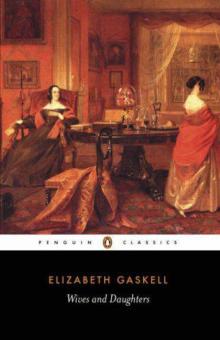 Wives and Daughters
Wives and Daughters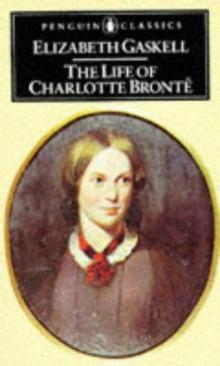 The life of Charlotte Brontë
The life of Charlotte Brontë